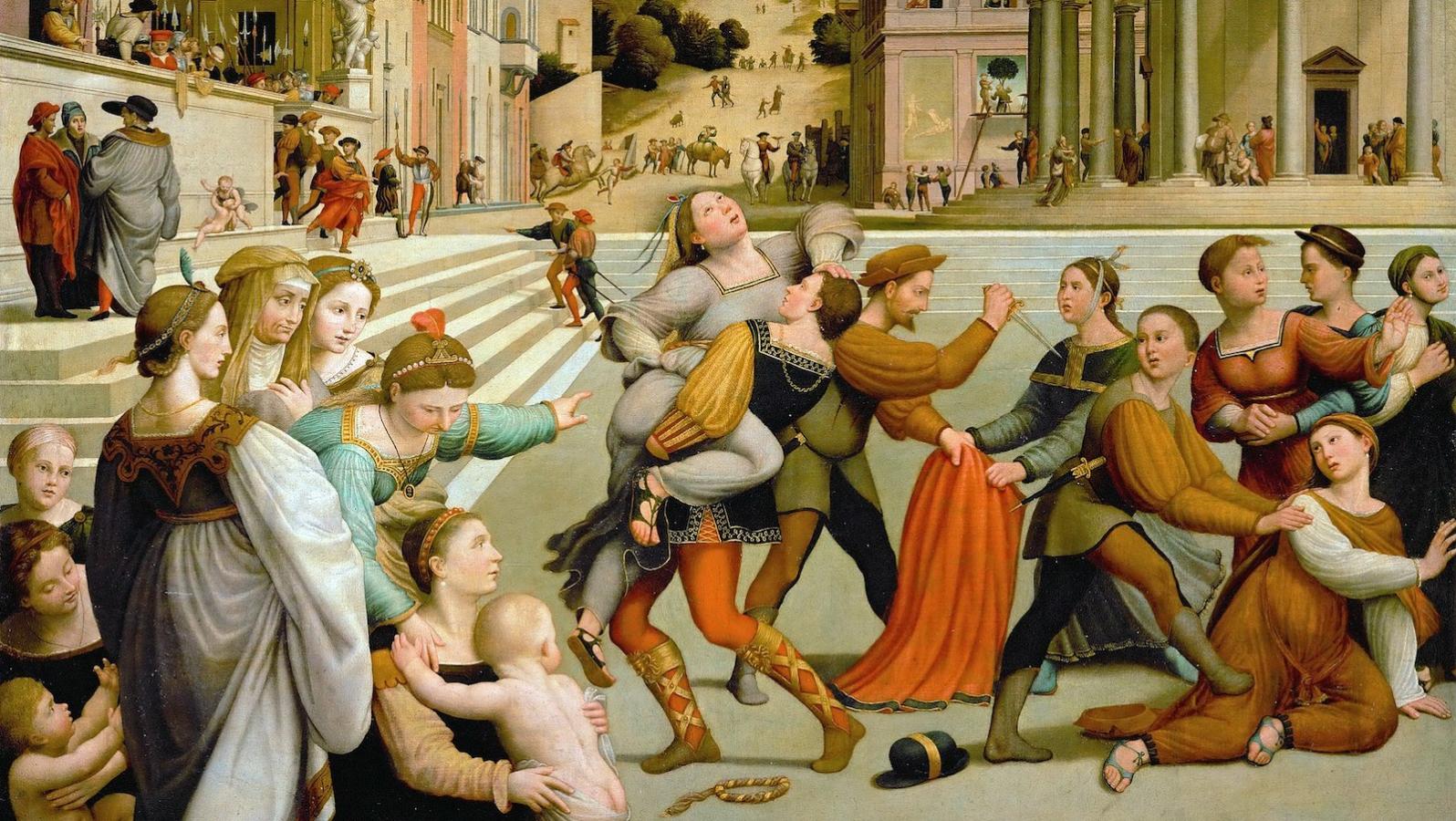Commentary on Parashat Vayishlach, Genesis 32:4-36:43
“Too often the strong, silent man is silent only because he does not know what to say, and is reputed strong only because he remains silent.” This indictment, spoken by Winston Churchill, initially reminds me of our patriarch Jacob. We read this week one of the most disturbing stories contained in the Genesis narrative — the abduction of Dinah. As our Torah portion tells us, Dinah was the daughter of Leah and Jacob, sister to Shimon and Levi. When she went out one day to meet the other young women of the land, the local prince, Shekhem, abducted and raped her. Upon hearing the news of this violation, Jacob reacted as we never would have supposed a father would — with silence.
Jacob and Shekhem Make A Deal
Juxtaposed with Jacob’s reaction, is the angry response from Dinah’s brothers. After abducting her, Shekhem fell in love with Dinah and wished to marry her. When Shekhem came to Jacob to plead his case, the Torah portion tells us that the brothers answered him, “cunningly, with deceit” (Genesis 34:13). Speaking for their father, they struck a bargain with Shekhem: If he convinced every single male in his land to circumcise themselves, then he could have their captive sister’s hand in marriage.
Rabbeinu Bahya, a 13th-to-14th -entury commentator from Spain, stated in his commentary on Vayishlach, that the brothers had no intention of letting Dinah marry this man. They planned, instead, to wait until the third and harshest day of pain after circumcision, when the men of the city would be weakest, and take their sister back from her captivity. This plan, however, morphed into a deadly act of vengeance.
The Revenge of Shimon and Levi
When Shimon and Levi went to release Dinah, something went drastically wrong. The brothers entered the home of Shekhem, and then crumbled into an emotional fury. They displayed a lapse of faith in God, who bestows righteousness and compassion, and in a moment of filial loyalty, stepped over aline that snowballed into wrath, rage and vehemence. They killed each and every male in the city and then turned their swords against Shekhem and finally his father.
With your help, My Jewish Learning can provide endless opportunities for learning, connection and discovery.
Rabbeinu Bahya, continuing his commentary on this Torah portion, states that Shimon and Levi’s rampage was not simply a momentary lapse in judgment; rather, that their actions were premeditated. They justified their revenge by holding the entire town’s men responsible for the abduction of Dinah. After all, had they not stood idly by as an injustice was done?
Despite these justifications, we cannot endorse their fit of rage, their emotional disregard for compassion and humanity. We must define their actions as a gross injustice, a crime and an embarrassment. Humanity is our gift from God. Though, sometimes we may forget our humanity and respond with vengeance, but vengeance is an instinctive emotion, not tied to our God given gifts.
Jacob Breaks His Silence
Our patriarch Jacob responded to his son’s horrible actions by crying out, “You have discomposed me, making me hated by the people here” (Genesis 34:30). You have messed everything up, he seems to say. You have messed up everything that we stand for, everything that we preach,everything that your ancestors have done before you. We followed God’s directions and taught others the meanings of righteousness and compassion; you have rendered these lessons in effectual. The Holy words of our tradition, the intensity of our faith, our belief in a righteous and compassionate God, all are now vapid and vacuous because of your actions.
Jacob is no longer silent. In fact, his message to his sons was loud and clear–“ahartem oti!” You confound me! This is not my family; I do not recognize these actions. How did Shimon and Levi respond to their father’s chastisement? They had no satisfying answer. When they should have apologized or at the very least remained silent in the face of their father’s rebuke, they attempted to justify an unjustifiable act by asking simply, “should he treat our sister like a harlot?”
Contemplating Our Responses
This Torah portion can be seen as both support for and a challenge to Churchill’s statement. The men of Shekhem who remained silent in the face of Dinah’s abduction follow Churchill’s words. Jacob, however, challenges Churchill’s wisdom. Sometimes, a situation demands contemplative silence — a silence during which one may deliberate and decide on appropriate reaction. Jacob’s sons, however, do not take their cues from their father’s silence; they act with rash judgment, which permanently damages their lives. Perhaps Jacob,the wiser, elder statesman demonstrated a silence that Churchill might even have envied.
In a society where instant reaction and instant messaging is the norm, we could take a few cues from our patriarch, Jacob. Acting without our God-given gift of intelligent reasoning, we damage our present and our future. May we take the time to live in the silent moments and then react with humanity.
Reprinted with permission of the Jewish Theological Seminary.
Torah
Pronunced: TORE-uh, Origin: Hebrew, the Five Books of Moses.



